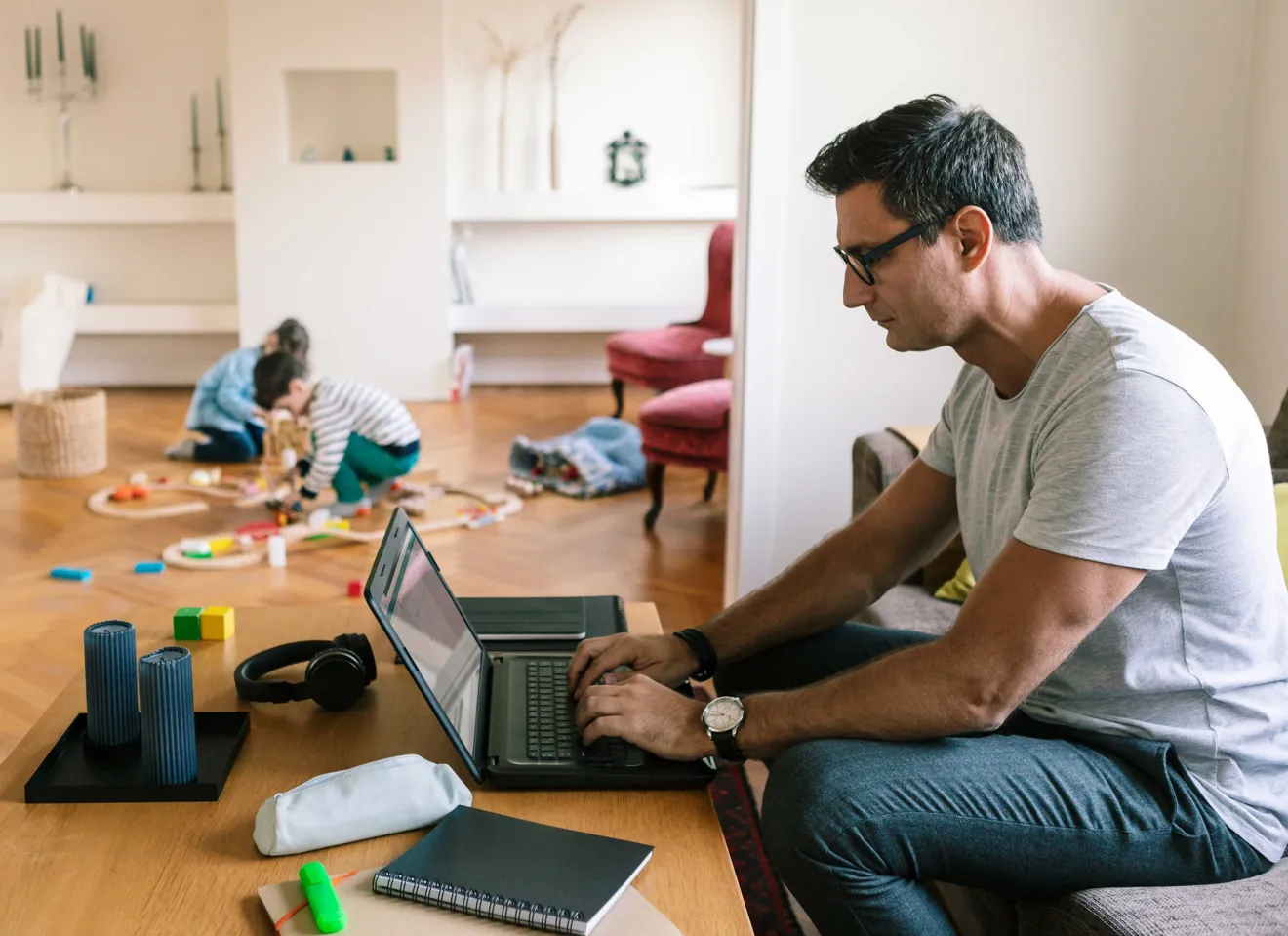
Advice and Tips
Home office
The term ‘home office’ refers to an arrangement where an employee works from their own home. The practice of home office has been in place for many years, but it has become more common during and after the pandemic. Most people who work from home usually combine work at home with work at their regular workplace.
New regulation from 2022
The regulation on work performed in the employee’s home (the so-called home office regulation) governs home-based work. The regulation was introduced from July 1, 2022.
The regulation is limited to work that the employee performs in their ‘own home’, and does not apply to other types of remote work, such as work from the cabin, work on the train, or on a business trip.
It is important to be aware that the regulation applies to home office as a permanent arrangement. The regulation thus does not apply to short-term or sporadic work, unless the employee only performs work in their own home. Whether one has a permanent or sporadic arrangement should be clarified with the employer.
Work from abroad can raise some special questions about NAV/social security, tax, and insurance that the employer and employee should investigate further before agreeing to a home office outside Norway.
Even if the regulation does not directly apply when working from places other than the employee’s own home, there is of course nothing to prevent the employer and employee from entering into an agreement on home office in such cases.
The Norwegian Labor Inspection Authority supervises the regulation.
Home office cannot be imposed or demanded
A home office can neither be imposed by the employer nor demanded by the employee. However, a home office arrangement can be agreed upon, but the employer will be able to say no if it is not already specifically agreed upon.
Regular rules about working hours
The Working Environment Act’s regular rules on working hours should also apply to work at the home office. There are therefore no special rules for home work. The reason is, among other things, that consideration should be given to the employees’ health and challenges in distinguishing between working hours and leisure time.
Written agreement on home office
If the regulation applies, the employer and employee must enter into a written agreement on the home office. It should make it clear what applies when the employee works from home.
The agreement must be entered into with the employees, in addition to the regular employment agreement. The agreement should regulate the following points:
- the extent of the home work
- the working hours that apply to the home work
- duration of the agreement
- who owns and is responsible for any office equipment
- when the employee should be available to the employer
- notice period
- any trial period for the arrangement
- any provisions on case handling, confidentiality and storage of documents (digital and physical)
The Norwegian Labor Inspection Authority has created a useful template that covers the requirements for the content of a written agreement on home office: Hjemmekontor (in Norwegian).
Work environment at home office
The employer has an overall responsibility for the work environment at the workplace, as well as the general rules on systematic work environment work (HSE). This responsibility also applies to the home office. The responsibility includes both the physical and the psychosocial environment at the home office. The regulation states that the employer should “as far as it is practically possible ensure that the working conditions are fully defensible”. It is not specified further how these investigations should take place, but a dialogue between the employer and the employee should be a minimum, and employees with a home office agreement should also contribute to a healthy and safe work environment. The goal is to ensure that possible and actual problems are detected and dealt with in time.
It also appears from the regulation that safety representatives and working environment committees should “as far as it is practically possible” safeguard the employees’ interests in questions related to the individual’s work environment, and ensure that work environment conditions for employees in their own home are part of the company’s internal control system. However, safety representatives do not have access to the employee’s home workplace without a special agreement.
Coverage of office equipment
Surveys conducted by Akademikerne show that there is a fairly large proportion (40%) who do not get covered costs for equipment at the home office, such as office chair, desk, keyboard etc.
The regulation does not in itself provide a basis for claiming covered expenses for equipment at the home office. But if this is an arrangement that both parties want, questions can still be asked about whether the employer should cover the equipment that is considered necessary. Here, the employer and employee should have a dialogue about what the need is and what can possibly be covered by the employer.
Occupational injury and home office
The Act on Occupational Injury Insurance also applies when using a home office. Some recent judgments are nevertheless quite strict when it comes to the conditions for occupational injury coverage at the home office. It is, among other things, such that difficult issues of proof can arise in relation to whether the conditions are met, for example whether a specific injury occurred while the employee was at work at the workplace during working hours. Such injury cases must be assessed individually. It may therefore be a good idea to have a chat with the employer about whether it is possible to take out additional insurance that will also apply to the home office.




